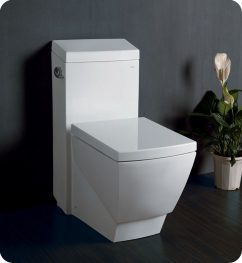Prevention is better than cure. This applies in all areas of life, including plumbing. The little things that we do, and the effort that we put in to consistently do preventive plumbing maintenance can save us from a lot of troubles and expenses. To encourage homeowners to be more proactive in maintaining their plumbing system, we have listed and discussed below very simple things that any homeowner can put into practice:
1. Inspect your pipes, fittings, valves, and taps regularly.
Don’t take things for granted even when they are hidden from public view. The main challenge with plumbing inspections is that the pipes are almost always located beneath a fixture, behind a wall, or worse, buried under a concrete floor. Get into the habit of going down the basement or getting on all fours to see if any pipe or pipe connection has a leak.
But don’t just look. Sometimes you can’t see dripping water, but that does not mean there is no leak. Move your hand along the connections and grooves to feel for moisture. Feel the floor directly under the pipes as well. Other than leaks, you are also looking for corrosion. If there’s rust on the pipes or valves, chances are they are also rusty inside.
2. Clean to avoid clogging.
Any hair, soap scum, foreign debris, trash, or pieces of food on the sink could get flushed down into the drain intentionally or accidentally. They could then accumulate inside the trap and cause problems. This is also true in the shower and bath drain, but none can be more problematic when clogging happens in the toilet. Here are three things you can do to prevent clogging.
a) Make sure each drain has a strainer
b) Flush boiling water regularly
c) Flush a mixture of vinegar and baking soda occasionally
d) Clear the trap by removing the clean-out plug
3. Observe practical kitchen, bathroom, and toilet maintenance at home.
Instruct your children and everybody else in the house to take good care of all plumbing fixtures and avoid dumping garbage into the toilet and drains. Practice the careful handling of valves and faucets, and avoid placing heavy objects on top of the sink, lavatory or vanity. Educate little children on how the flush works and why it is important not to play with it.
4. Ask a professional to do preventive maintenance.
It is not uncommon for plumbers or contractors to offer preventive plumbing programs. Contractors and plumbers are licensed and experienced, which means they know exactly what to look for and where. They will perform a thorough and systematic check to identify and prevent a potential problem from happening.
Preventive Plumbing Benefits
As you perform these four tips in preventive plumbing, you get these two important benefits.
1. Peace of Mind
You know that as you turn the tap you get warm water every time you need it. As you activate the flush, you know that your toilet gets cleared and all the waste goes down the drain. You are also confident that the water that reaches you is clean and fresh.
2. Save on Plumbing Costs
Preventive maintenance allows you to save money from costly repairs and replacements. Even if you don’t do it yourself, paying for professional preventive care is less expensive than paying a professional to fix or replace something. Preventive maintenance also adds years to your pipes and fixtures.
Joyce Del Rosario is a blogger from Toronto Plumber, one of the leading sites offering Drain Camera Inspection.

